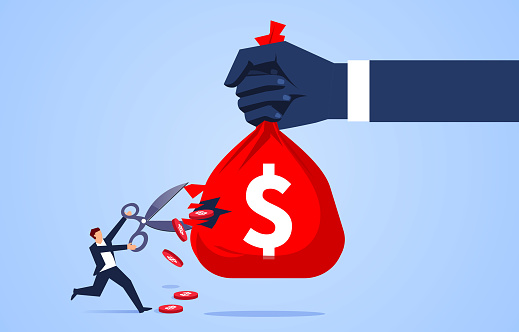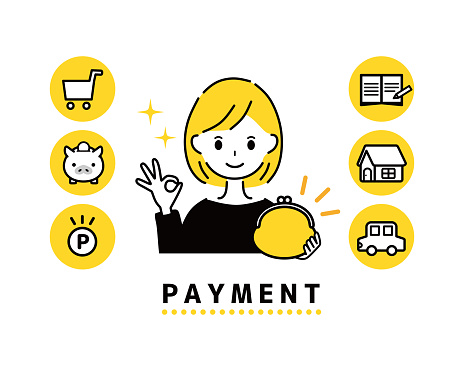If You Currently Own a Home, But Would Like to Trade Up, Start Here.
If you're a young homeowner contemplating upgrading your living situation, you're likely met with both excitement and a sense of overwhelming decision-making. This thorough guide will navigate through the pathways, pitfalls, and considerations to assist you effectively in trading up your home. Or perhaps, deciding not to!
**Understanding the Desire
to Trade Up**: The very first step in trading up your home is understanding why
you want a bigger or fancier house. Is it because your family is growing,
you're aiming for a better neighborhood or schools, or maybe for investment
reasons? Are your friends/siblings doing it? (Not a good reason, FYI!) Each
motivation will guide your decisions differently throughout the process.
**Evaluating Financial Readiness**: Before embarking on this journey, assess your financial health. Are you experiencing a tight budget? Do you have substantial equity (the difference between what your house is worth and what you owe on it)? How does your credit score look? Remember, more credit isn't always better, but having some that shows responsible usage and on time repayment is vital.

**Market Research**: Do some initial research about the real estate trends in your desired locations. Consider if the market conditions favor buyers or sellers, as this will impact your strategy. One way to tell if it is a seller's or buyer's market is how long homes stay on the market. If they often sell very quickly, it is a seller's market.
**Current Home’s Value and Improvements**: Know the value of your current home. Might you need to make repairs or improvements to maximize its sale price? Go to zillow.com, put in the address of your current home, and it will give you an idea (it is not an appraisal) of what you might be able to sell your home for. You may want to consider having a realtor come to your home and evaluate what you can do to maximize the resale value of your home.

**Figuring Out Your Available Down Payment**: Deduct 20% from the sales price of your current home to cover closing costs on the new home, commissions for both realtors (your realtor and the purchaser's realtor), repairs you may be forced to do, and the "X" factor (maybe your home won't sell for that much). Subtract what you owe on the home and moving costs and that is the money you have to work with. If you can't put at least 20% down on the new home, you are not ready to trade up or you need a less expensive home to purchase.
**Using Savings for Part of Your Down Payment**: If you have savings also, you can use this, but be sure not to use all of it. If you do not have much in the way of savings, set aside six months' salary from the money you will make from the sale of your house. You don't want to go into a more expensive house with no savings!
**Budget and Financing**: Determine how much more you can afford to spend on a new home. Factor in the higher costs like property taxes, insurance, higher utilities (larger house = higher utilities), and maintenance. Remember, the mortgage company will qualify you for the most you can afford, but they are not taking into account things like activities/sports your children are involved in, vacations, buying more furniture to fill a larger house, how much you like to eat out, and other expenses that are "extras".
**Home Buying Steps Timeline**: A critical tool in trading up is a
detailed timeline that outlines each step in your home buying process, from
viewing properties to making an offer and closing the deal.
**Selling Before Buying?**: Decide whether you'll sell your
current home before buying the new one. This decision has significant financial
and logistical implications, including the potential need for temporary
housing. Since it is a seller's market in many areas right now, some
people are even selling their current home and renting for a couple of years
until they see where they might want to be at that time.

**The New Mortgage Dilemma**: THIS IS A BIGGIE! With interest rates no longer being held artificially low as they had been for 10 years, understand that your new mortgage's interest rate will likely be higher than your current one. This is a huge factor if you have a low interest rate on your current home. Think about paying another $1000 a month on your housing payment. Is that something that will work for you, or will it just cause additional stress? You could consider assuming someone else's loan that has a low interest rate. For more information on that, go here.
**Calculate Your Mortgage Payment**: Use a mortgage calculator to figure your new payment, including taxes, insurance, and any homeowners association dues for the new home. If you see a home on zillow.com (my favorite site!) you like, scroll down in the listing and there is a payment calculator that should pretty accurately show the taxes, insurance, and homeowners association dues for that home. You can change the down payment if you need to. It will plug in an interest rate which should be fairly close to what you will pay on the new mortgage.

**The Search for the Perfect Home**: Start looking for your new home. Consider your non-negotiables, like location, size, and specific home features. Don't fall in love with a house and feel like you must have it at all costs without considering the practicality and potential resale value. Be prepared to walk away from any home.
**Hiring A Realtor**: At the moment (this may change), a real estate agent is a free service to you because they are paid by the seller of the home you buy. You don't need to hire a realtor until you have squared away a lot of the initial steps above. They may try to push you to put a contract on a house before you are ready. A realtor that does that is putting their own interests ahead of yours and is not representing you well.

**Hiring a Loan Officer**The individual Loan Officer is more important than the company or bank they work for. A good Loan Officer actively manages your transaction and does not let details fall through the cracks, creating unnecessary stress and possibly causing you to lose a house you love. They set realistic expectations from the very beginning, and they respond quickly to calls and emails. Ask friends and relatives if they have had a good experience with a particular Loan Officer, or if they know of any you should avoid; check reviews of Loan Officers online.
**Comparison Shop** Write side by side the interest rate and closing costs offered by several different Loan Officers. Closing costs are not as important as the interest rate you get, as that will affect your payment throughout the life of the loan. Keep an eye on how fluctuating interest rates affect your mortgage payment. A small increase can significantly impact your monthly budget.
**Home Buying Steps After Offer**: Once you've made an offer, understand the steps that follow, such as negotiations, inspections, and closing adjustments. Each of these steps has potential setbacks, so prepare accordingly. Again, be prepared to walk away from any home if the details cannot be worked out to your satisfaction.
**Managing the Transition**: Juggling between selling your old home and
buying a new one can be stressful. Planning for overlap or having temporary
living arrangements can ease this transition. Find out if the seller of
the home you want to buy is prequalified for their new home loan. Be
aware of the "domino effect" where one party to your string of
transactions can hold up multiple transactions.
**Financial Cushion**: Always maintain a financial buffer.
Unexpected costs ALWAYS arise during home buying or selling. Keep unused credit
available for such emergencies but resist the temptation to use it frivolously. Don't forget about closing costs! Somebody's got to pay them. To learn more, go here.

**Long-term Considerations**: Trading up isn't just about immediate satisfaction. Consider the long-term implications of your purchase, including maintenance costs, the potential for appreciation, and your future financial goals. Could that additional money per month you will be paying on your mortgage be better applied to paying off credit cards charging you 29% interest or saving for a more comfortable retirement?
**Avoiding Common Pitfalls**: Many young homeowners feel FOMO or act on
impulse, leading to decisions they later regret. Take your time, do your
research and make informed decisions. You are not competing with friends
or siblings to see who can get the deepest in debt!
**Market Fluctuations**: Be aware that market conditions can
rapidly change. What seems like a buyer's market can quickly shift to a
seller's market and vice versa. Follow interest rate movement and try to
lock in your interest rate at a favorable time. A good Loan Officer can
assist with timing on locking your rate.
Things You May Not Have Thought Of...
**Home Inspections**: Never skip a professional inspection of the home you decide on, even if it is new construction. You want to walk into your new house with your eyes open to all the repairs that might come up soon or a few years after you move in, and you want to make sure you are not overpaying for the house. Be prepared to walk away from the house if the inspection cannot be worked out to your satisfaction. Never let the realtors or seller choose the home inspector because they have an incentive to gloss over repairs to make the deal happen.
**Emotional Preparedness**: Trading up can be an emotional rollercoaster. You might feel inexperienced or frustrated along the way. Stay focused on why you started this journey, and don’t let emotions cloud your judgment.
**Kids and Family Considerations**: Even if you don't have school-age kids, poor schools in the area can affect your resale value. If you have a growing family, think about factors like schools, parks, and community safety. These are as crucial as the house itself. At the bottom of any listing on zillow.com, you will find the "Good Schools" rating for the elementary, middle, and high school that serves that home.
**Lifestyle Changes**: Consider how this move aligns with other lifestyle changes you foresee. Is it flexible enough to accommodate unforeseen changes in your life or career?
**Energy Efficiency and Sustainability**: Consider the energy efficiency of your new home. This is not only good for the environment but can also save money in the long run. If some of the appliances or the HVAC system are older, these will cost you more per month in utilities.

**Resale vs. New Construction**: While it might seem exciting to pick out a lot of the features of your new home, some people regret buying new construction because the subdivision often has few trees or landscaping, the house has no fence or outbuilding yet, and living in a neighborhood where construction is going on for months can be annoying. In addition, a lot of new subdivisions have very short driveways, causing a lot of street parking which can get to be worse and worse as time goes on.
**Neighborhood Dynamics**: You're not just buying a house but also buying into a community. Something I recommend that people often don't take the time to do BEFORE they put a contract on a home: drive to the home from where you work during rush hour. The traffic around the home you are considering will be quite different than it is on the weekends, as will the traffic noise. There may also be other negative influences you become aware of by visiting the property during rush hour.
**Dream Home Realism**: While it’s good to dream, be realistic about what you can afford and the compromises you might need to make. There are alot more expenses involved with a larger home than just the mortgage payment. Take into consideration things like blinds/window treatments that will be needed, whether it has a place already for you to store garden tools and lawnmower, and whether there is a fence if you want one.
**Tax Implications**: Sometimes, gains from the sale of your primary residence are taxable. Calculate the difference between what you paid for the home and what you will sell it for: this is your "capital gain". If you are single, the first $250,000 you make off the sale is exempt from tax; anything above that, you will pay tax on. If you are married, filing jointly, any gain over $500,000 is taxable.

**Community Amenities**: Is your dream home close to
necessary amenities? Think about shops, public transport, hospitals, and other
essential services.
**Downside to Trading Up**: Being aware of the risks involved
with trading up can prepare you better. Increased financial strain, higher
maintenance and utility costs, and bigger mortgages are factors to consider thoughtfully.
**Consulting Financial
Advisors**: It's advisable to consult with your financial advisor to ensure
that trading up makes sense from a financial perspective and aligns with your
long-term financial plans.
**Making the Decision**: Armed with this comprehensive guide,
take the time to weigh all pros and cons before deciding. Remember, trading up
is a significant life and financial decision, and moving forward with a sound
strategy is crucial for ensuring it's the right "move" for you and
those that live with you. Thinking of buying a home solo? Click here.
Home | Privacy Policy | Contact | About Me
Copyright © 2022- freecredithq.com All rights reserved